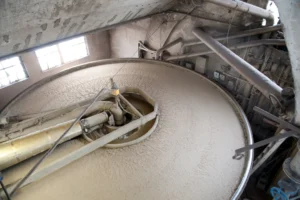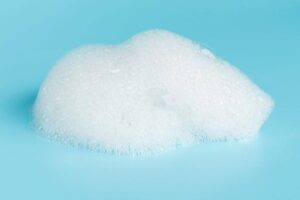Foam is a major challenge to fluid systems. It can reduce product quality, significantly disrupt system efficiency, and even create safety risks if left untreated. While pure liquids do […]

Benefits of Silicone Antifoams
What is a Silicone Antifoam? A silicone antifoam is typically made of hydrophobized silica finely dispersed within silicone fluid. This compound is often stabilized in the form of a water-based […]

Foam Control Solutions for the Food & Beverage Industry
Foam is produced when gas (e.g., air) is added and becomes stabilized within a liquid (often water) containing impurities and surface-active agents (surfactants). The molecules of surfactants form a film […]

Why Should I Use Water-Based Defoamers?
Defoamers play a critical role in ensuring foam does not affect the quality of products and processes during industrial applications. They are available in many variations to suit different operations, […]

Don’t Passover Our Antifoams
Many types of foods and ingredients foam during the production process. If foaming is permitted, it can alter the product’s appearance, manufacturing time, quality or performance. Food-grade antifoams and defoamers […]

Benefits of Hydrophobic Silica
Hydrophobic silicas are a unique class of materials with a wide variety of functional attributes and beneficial properties making it ideal for numerous applications ranging from adhesives, greases, and sealants […]

What to Look for in a Foam Control Supplier
Antifoams and defoamers are vital for the safe, efficient operation of processes in a multitude of industries. Finding an experienced foam control supplier can save a great deal of hassle, […]

What Is a Defoamer?
For most fluid systems, foam control is an interesting challenge to overcome. Pure liquids do not foam or will not form a stable foam. In an aqueous system, contaminants such […]

Top 4 Tips for Proper Antifoam Use
The formation of foam in aqueous processes and products—such as flume water for the transport of vegetables—can hinder or halt many industrial processing operations.

Defoamers for the Pulp & Paper Industry
Foam in the Pulp & Paper Industry Lignin, rosin and fatty acid soaps, and hemicellulose are commonly formed during the pulping process, resulting in high levels of foam. Excess foam […]
